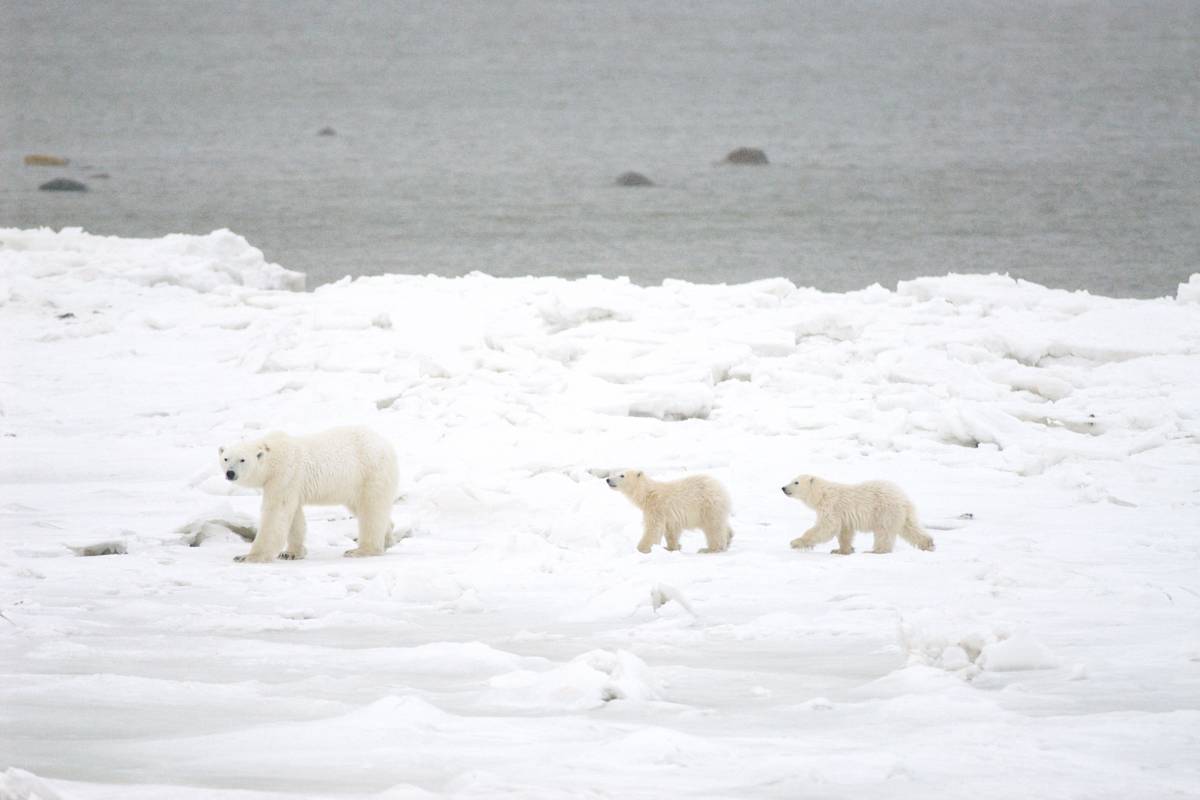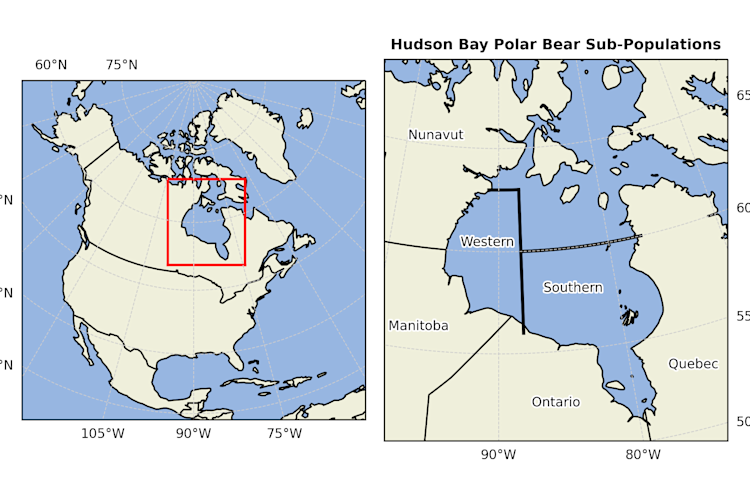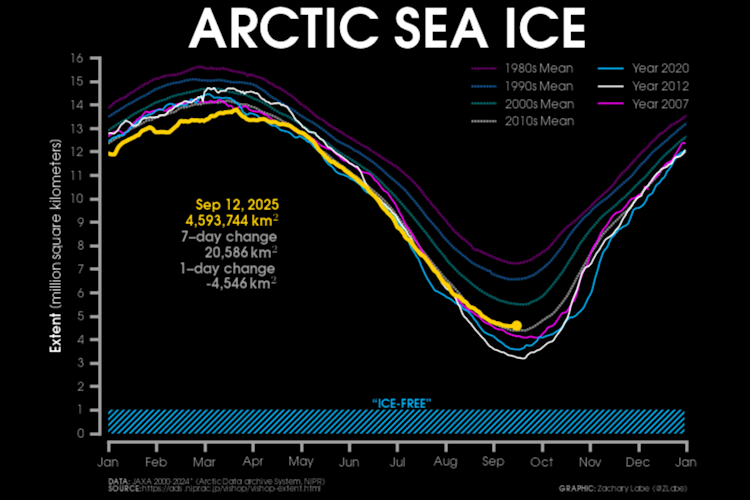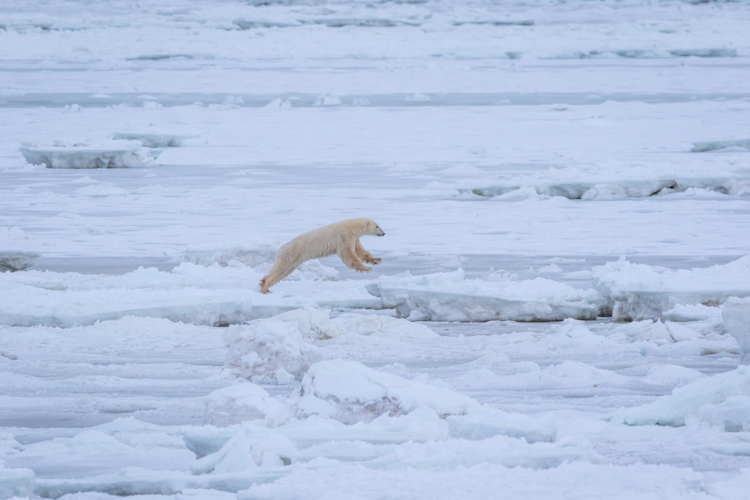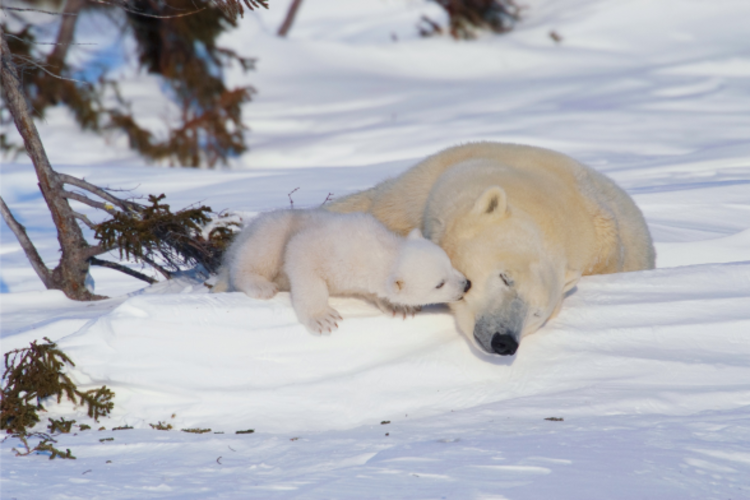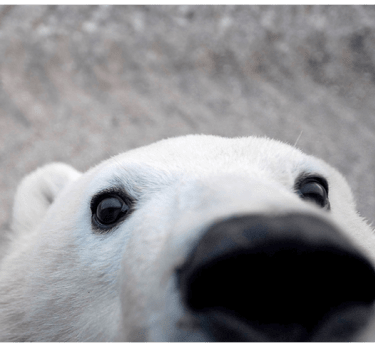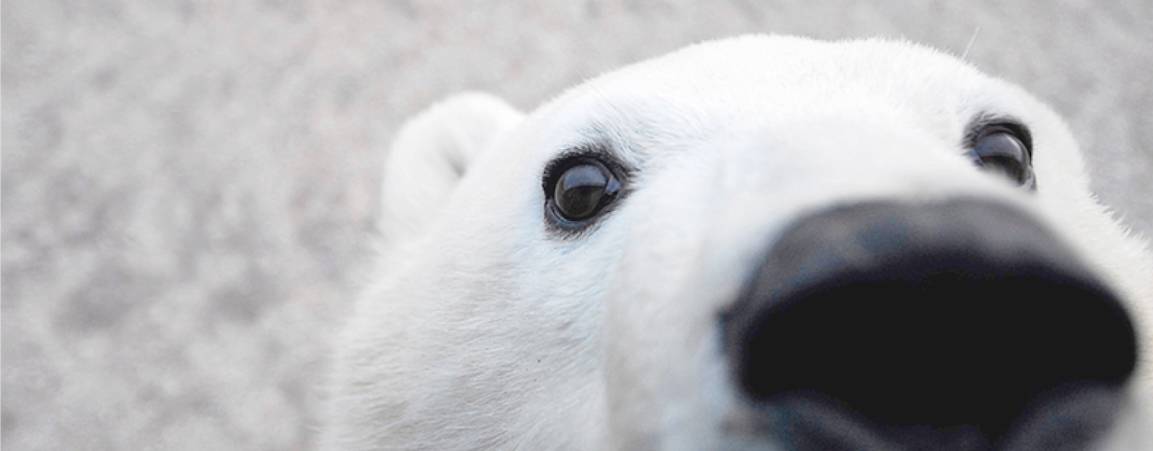Canada’s Hudson Bay is part of the seasonal sea ice ecoregion, where the sea ice melts and disappears in the summer and returns in the cooler fall and winter months. Over the last 30 years, Hudson Bay has warmed by approximately 1 degree Celsius, leading to an earlier melt and a later freeze-up, with the sea ice absent for on average around a month longer now compared to the 1980s. These shifts in the seasonal sea ice patterns pose a challenge for the polar bears in the region, which are increasingly faced with longer stretches on land and shorter time on the sea ice hunting seals, their most important prey.
Earlier research identified the polar bear populations in Hudson Bay as among those most vulnerable to collapse with continued warming. A recently published collaboration between climate scientists and polar bear and seal biologists considered these risks in light of the climate goals laid out in the Paris Agreement, a legally binding international treaty on limiting climate change that was adopted in 2015. Their findings show a troubled future for Hudson Bay bears under a breach of the Paris Agreement.
